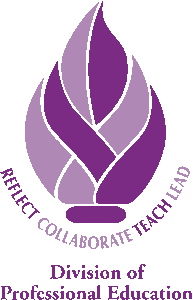- Student Organizations
- Curriculum
- Study Research Opportunities
- Study Abroad Opportunities
- Student Internship Opportunities
- Events
- Faculty
- Accreditation
Education Mission
The mission of the Department of Education is to equip students with the knowledge, skills, and dispositions that will prepare them to become effective educators. Our future educators are reflective, collaborative teachers and leaders who are dedicated to impacting PK-12 education in an increasingly diverse, technological, and global society, who promote a lifelong commitment to learning. The Department accomplishes this mission by offering high-quality programs that provide experiences designed to respect the diversity of children, their families, and communities.
Students interested in professional education programs are encouraged to begin preparation for the Praxis Core test upon entry to the University. The Education Advising and Assessment Center serves as a great resource to assist students in preparing for the test, which is required for program entry.
Students seeking licensure in the Department of Education must meet all entry, continuation and exit requirements. Students should seek advisors in both the Department of Education and the major area to obtain materials outlining requirements.

![]()

